When musician Brodie Brown woke up inside a mental hospital on his 15th birthday, he didn’t have much hope.
He certainly didn’t know that his life was about to change forever, thanks to a surprise gift from even more surprising senders.
Born with a rare condition called lymphangioma, which causes a lump in the neck, Brodie was unable to breathe on his own as a baby.
From just two weeks old, he was in and out of hospital. And by the time he was a teenager, the Stirling-born lad had undergone more than 70 surgeries on his throat, with his parents and sister moving down south to be with him as he resided in Great Ormond Street Children’s Hospital.
Thankfully his throat healed, but robbed of a normal childhood by his condition, his mental health understandably suffered.
Then at just 14 years old, Brodie suffered a traumatic breakdown and episodes of psychosis, and he was sectioned.
A few months later, when he was struggling to cope with life inside a facility, Brodie received a bass guitar for his birthday from none other than Chelsea Dagger hitmakers The Fratellis.
The Fratellis sent guitar to hospital
“I was in hospital for my mental health and I guess that was the start of my journey in terms of music,” says Brodie, now 18.
“The Fratellis had heard I was having a struggle, and they sent me a bass for my 15th birthday. And that was when I started doing music.
“I taught myself how to play, started learning when I was in the hospital. And I also started writing poetry, which I then turned into songs.”
Since then, Brodie has met The Fratellis and been backstage at their gigs, where he received encouraging feedback from the band.
“They told me just to keep doing it,” he smiles. “And I have.”
Now, Brodie is a finalist in Yoko Ono’s annual John Lennon Songwriting Contest, judged by the likes of Red Hot Chilli Peppers bassist Flea and Natasha Bedingfield.
His entry, Monsters, is in the running for the Song of the Year award – which includes a life-changing £20K in prize money.
The track, Brodie says, describes “living with psychosis and how it can affect day to day life”.
Psychosis symptoms included ‘seeing’ childhood dog and hearing voices
“It’s not a particularly pleasant thing,” chuckles Brodie darkly. “When it’s bad, it’s like seeing and hearing people that aren’t physically in the room, or feeling very crowded even in a large open space because there’s so much going on that’s just created by my brain.”
One particularly harrowing experience for Brodie was when he began to ‘see’ his deceased childhood dog, Syd, as part of a hallucination.
“I was seeing and hearing my dog once he’d passed away, when I was at the peak of my mental struggles,” reveals Brodie.
“It was a very difficult thing to have happen. And it was unusual because it was concerning, but also a bit comforting to have him there.
“It can be hard to differentiate between what is and isn’t reality if I’m left alone. And it’s quite hard to describe with words.”
That’s where music comes in.
For Brodie, songwriting is a way to express emotions that he otherwise wouldn’t have an outlet for, and so he wrote another song called Canine Ghost to process his challenging symptoms.
“It’s good because it gives me something to put all my energy into and completely focus on,” he says.
“It’s like a way to deal with [psychosis] and express it in a way that I can’t do with just speaking. Managing to write a song about it helps me deal with it better.”
‘I wouldn’t be here without songwriting’
For Brodie, the catharsis that comes with writing songs has been literally life-saving. After a year in hospital, he was released, and is now learning to live with help for his psychosis.
“It’s definitely saved me,” he says matter-of-factly. “Most of my friends didn’t make it. If I hadn’t found it, I don’t think I would be here – which is upsetting, but I’m glad I’ve managed to find something that really works.
“I tried art therapy and normal therapy, and it all helps in a way. But I’ve found this one thing I really love and I just want to hold on to that.”
Last year, Brodie released four singles, and already his dedication, talent and tenacity have been recognised.
Going from having dozens of throat surgeries to singing his own songs is an achievement in itself, but in February 2024, Brodie won Best Breakup Song in a flash competition run by the John Lennon Songwriting Contest.
In his winning track, It’s Never Enough, Brodie sings about a relationship in which he felt like he needed to change himself to be liked or loved – one of his few “normal teenage experiences”.
On reflection he observes that “you shouldn’t have to change yourself to make something work for someone else”.
“That goes for everyone, not just me,” adds the young wordsmith.
“You need to stay true to yourself and love yourself, because it can be hard to do those things if you’re focusing on someone else.”
Brodie Brown granted uni place based on ‘raw talent’
These days, Brodie is laser-focused on one thing and one thing only: music. It’s what gives him hope for the future – and a map to a good one.
Despite having been unable to attend regular schooling due to his illness, he has recently completed a one-year college course in music performance.
And after summer, he is set to study songwriting at university, after being offered a place by WaterBear College of Music.
“When we heard his music, we knew we had to help, even though he didn’t meet the entry requirements,” explains WaterBear founder Bruce Dickenson.
“WaterBear exists to find and nurture raw talent. So we worked with our partners at Falmouth University to formally recognise Brodie’s real-world musical achievements.
“I am so pleased that we could offer a place on the degree due to the sheer quality of his musical output.”
And where many 18-year-olds would be chomping at the bit to spend £20K on a car, flash holidays or designer clothes, Brodie insists that if he wins the Song of the Year prize, there’s only one thing he’s spending the cash on.
“Music!” he laughs. “My studies, my tuition fees, maybe some cool pedals. I just want to invest in my career as a musician.”
Brodie Brown: ‘I’m not doing half bad’
When we speak, Brodie is in a hotel room in Florida with his dad Malky on a family trip. And it’s clear even over the phone that Malky is bursting with pride over his son’s achievements in the face of such adversity.
“My family think it’s magic, they’re really proud of me,” Brodie says softly, as Malky murmurs in agreement in that particular way of Scottish dads.
“And I’m proud of myself too, because I never thought I’d make it. Now I’m not doing half bad for myself!”
As we get ready to end the call, I ask Brodie if he has any advice for young people facing severe mental struggles like he did. His answer is short, sweet and sincere.
“Find something you really enjoy and run with it,” he says. “Because it could save your life.”
If you or someone you love is suffering from psychosis and you are worried, you can call the Samaritans support service on 116 123, take them to A&E or contact NHS 999.
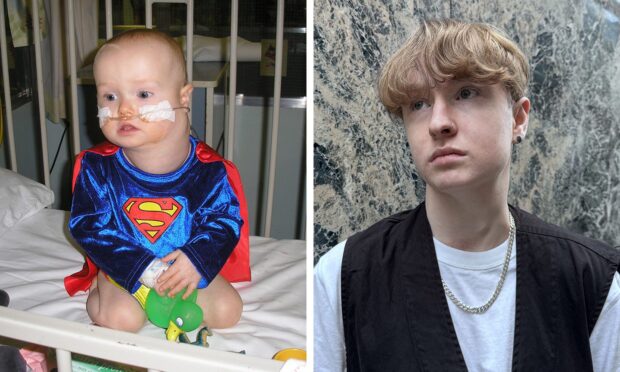
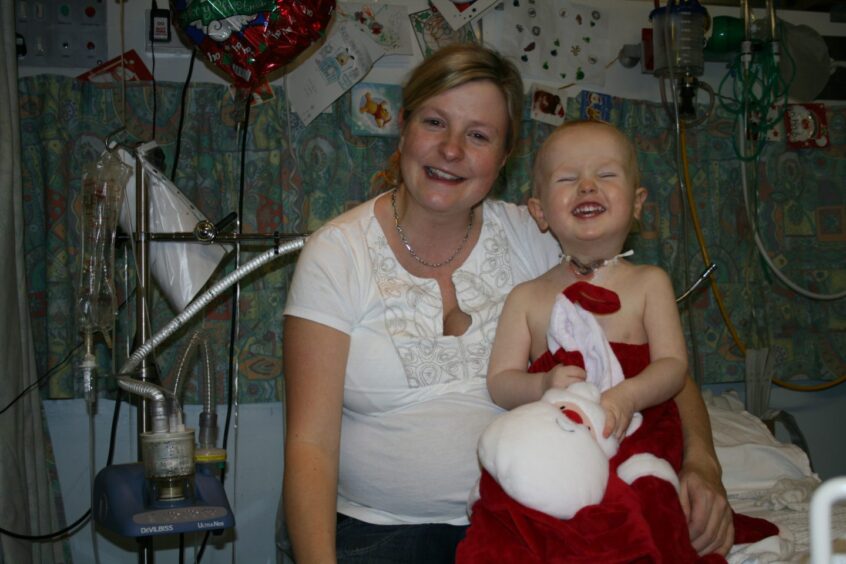
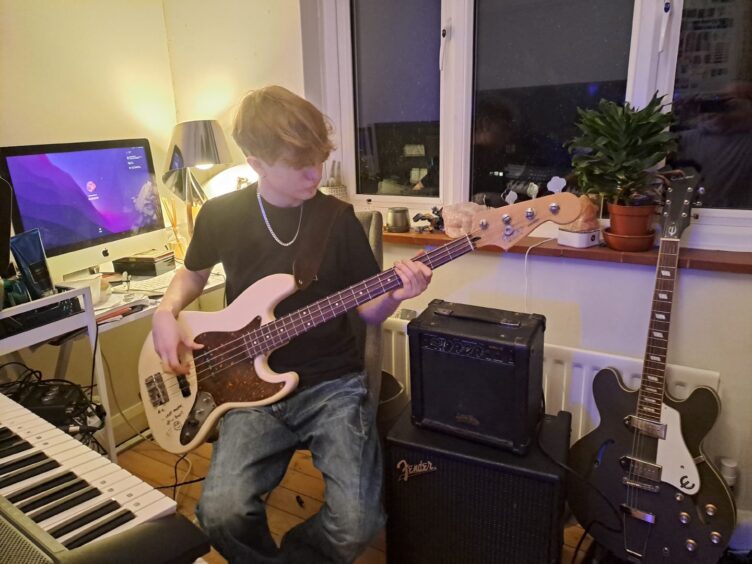

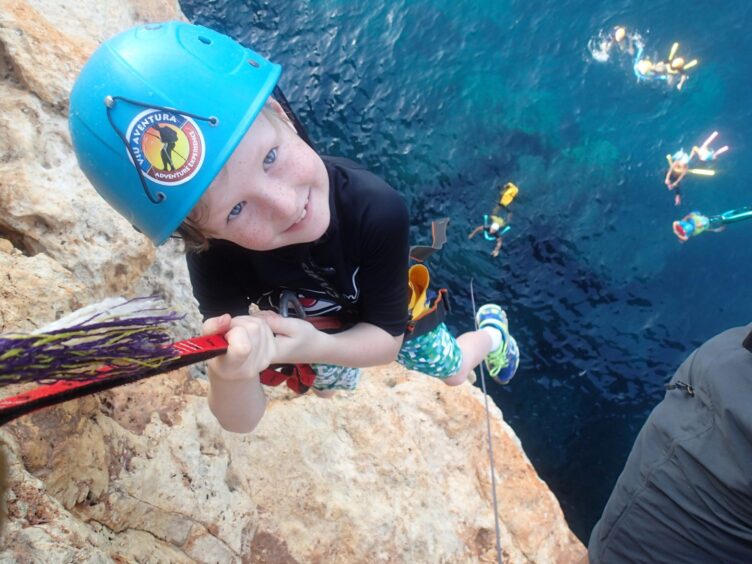
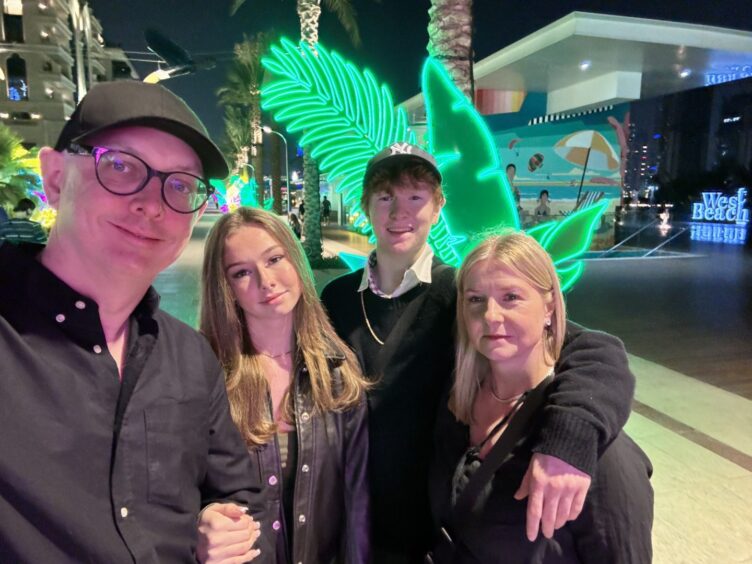
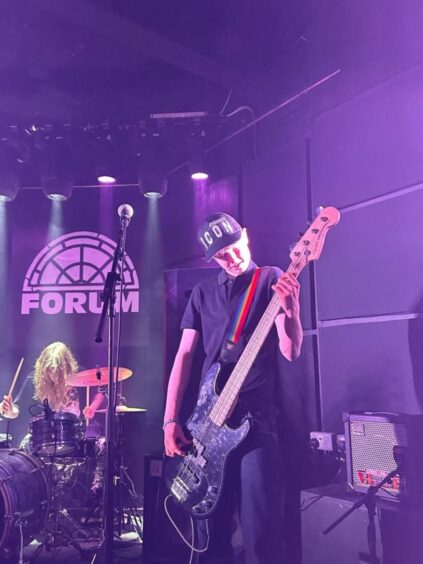
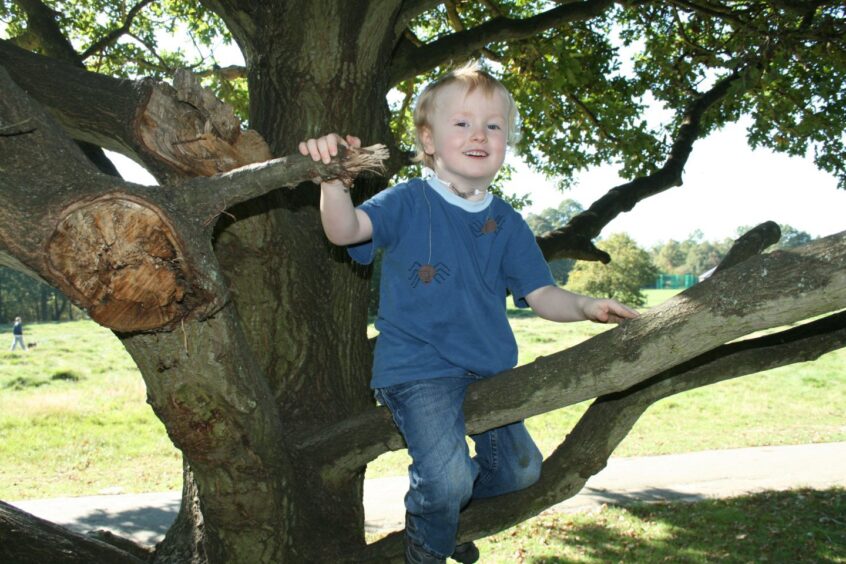







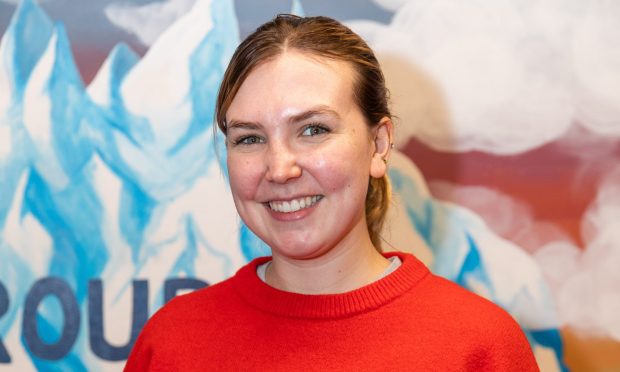


Conversation